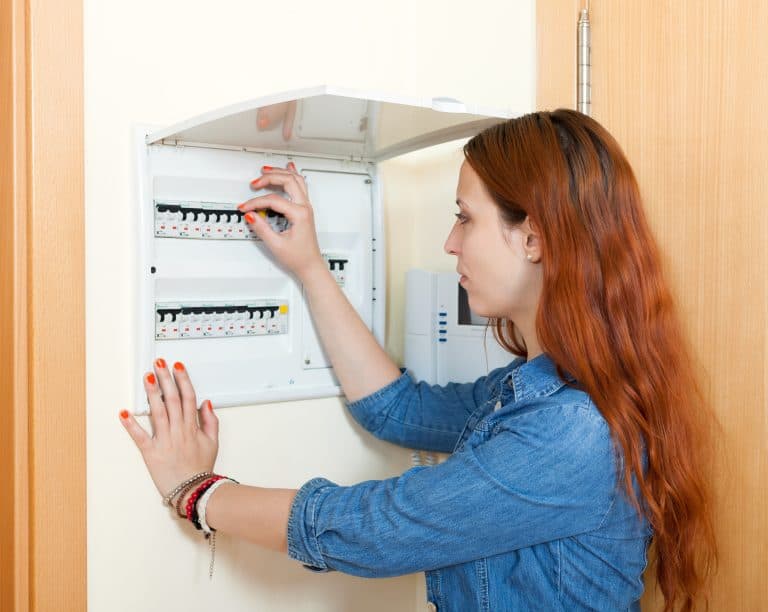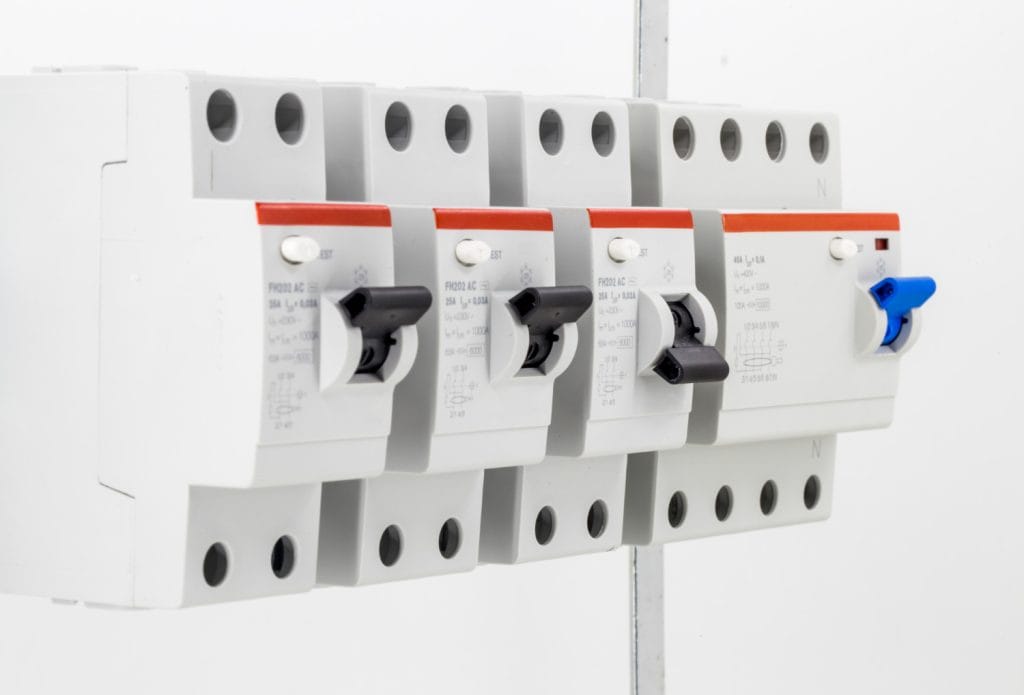Understanding Circuit Breakers
Circuit breakers are a crucial component of any home’s electrical system, serving as the first line of defense against potential electrical hazards. Understanding how circuit breakers work and knowing when to upgrade or replace them is essential for maintaining a safe and reliable electrical infrastructure. This guide covers their importance in protecting your household from dangerous overloads and short circuits, helping you ensure the safety and efficiency of your home’s electrical setup.
⚙️Types of Circuit Breakers

Several types protect residential systems:
Standard (Thermal-Magnetic): Protects wiring from sustained overcurrents (thermal) and sudden high currents from short circuits (magnetic).
GFCI (Ground Fault Circuit Interrupter): Protects people from shock by detecting ground faults (current leakage) and quickly cutting power. Crucial near water (kitchens, baths, outdoors).
AFCI (Arc Fault Circuit Interrupter): Protects against fires caused by dangerous electrical arcs in damaged wiring. Required by modern codes in many living areas.
Having the right types installed is critical. Regular checks ensure they function correctly.
⚠️Signs of a Faulty Breaker

Watch for these warning signs:
- Frequent Tripping: Constant trips on one circuit without new load may indicate a problem.
- Won't Reset / Stays Tripped: Could signal a short circuit or a failed breaker.
- Visible Damage / Burning Smell: Scorch marks, melted plastic, or burnt odor require immediate electrician attention. Do not touch!
- Flickering Lights / Intermittent Power: Can sometimes indicate a loose connection or failing breaker.
- Breaker Feels Hot: Unusual heat can mean a bad connection or internal fault.
- Old Age / Obsolete Panel: Breakers wear out. Very old panels (e.g., FPE Stab-Lok, Zinsco) may pose significant risks.
Prompt inspection by a qualified electrician is vital if you notice these issues.
🛠️Maintenance & Upgrades

Keep your system safe and reliable:
- Visual Checks: Look for damage, ensure labels are clear.
- Test GFCIs & AFCIs: Use the "Test" button monthly per manufacturer instructions.
- Avoid Overloads: Don't plug too many high-wattage devices into one circuit.
- Keep Panel Clear: Ensure easy access and keep the cover on.
- Call a Pro: Never work inside the panel yourself. Call a licensed electrician for issues, replacements, or upgrades.
- Consider Upgrades: If your home is old, you're adding load (EV charger), or lack modern safety breakers (GFCI/AFCI), consult an electrician.